Civil society has played a key role in tackling the COVID disaster through timely and effective responses. Yet, the pandemic acted as a litmus test to determine its resilience at a time when processes of disintegration were causing multiple disruptions to a deeply segregated global community. Necessary emergency measures, that included mandatory social distancing at an individual level, and state-wide lockdowns and international travel restrictions on a larger scale, diminished the already limited scope of operation of the civil society. Moreover, reduced financial support from donors and political restrictions on civil society organisations (CSOs) in different countries made the forging of partnerships between various civil society actors more difficult. Yet the unprecedented and widespread devastation brought on by the pandemic, was a siren that called for greater interdependence and collective learning in order to respond to the emerging crises.
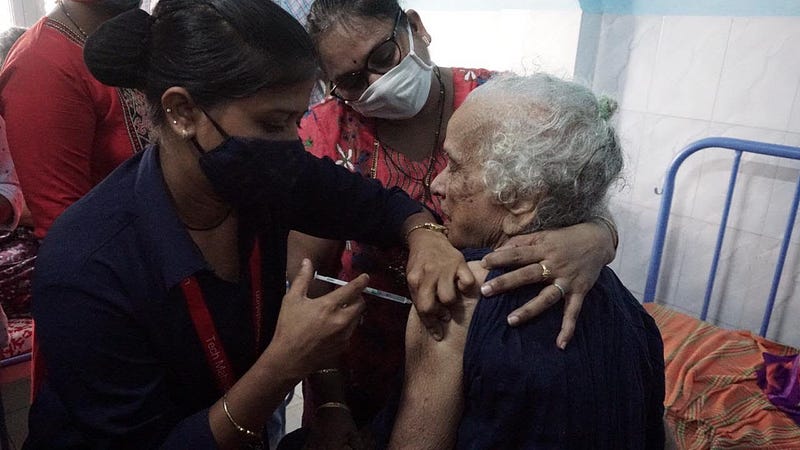
The pandemic also presented the opportunity to revisit previous commitments to justice. At a time when ‘building back better’ is a slogan that is catching on universally, it is also essential that society as a whole ‘builds back together’. There is an experienced need to renew social contracts between various stakeholders while placing the community and environment at the heart of any action plan. Among the actors of civil society, opportunities for collaboration present themselves in various ways:
i) Cooperation for Information Sharing: At a time where information between the medical community, governance structures, and the general public required to be accessible and transparent, CSOs could cooperate to facilitate awareness building and knowledge generation and transfer. Thus, a two-way generation and flow of information could allow for planners to get a better picture of the existing vulnerabilities, as also for people to know the easiest channels to access basic services. It also served as a means to avoid duplication or unnecessary overlaps, allowing organisations to work efficiently towards a common goal.
ii) Strategic Alliance for Quick and Effective Responses: The need of the hour was for rapid response and recovery, which involved various stakeholders across several geographical regions. CSO networks, which were already present on the ground, could ensure that the targeted response, particularly for the benefit of vulnerable communities, be hastened. In addition, they could support the governance structures by standing in solidarity and facilitating the provision of vital services by these institutions.
iii) Distribution of Financial Resources: Considering the novelty of the virus, and the unpreparedness of various institutions, there was a need for emergency funds generation and distribution. CSOs, in particular, had the social capital to respond, yet many required financial support to scale-up their interventions. Hence collaborations and redistribution of monetary resources, in an environment that prized cooperation over competition, was necessary.
iv) Collaboration towards Data-driven Unified Voice Advocacy: The underlying idea of civil society is linked to the argument of solidarity born out of a strength in numbers. Since the struggle for justice is universal, and bears in mind the layers of inequality that manifest in society, stronger alliances and unification of demands allows to steer the direction of change and also make strategic policy interventions. Additionally, all grassroots actors can contribute to robust data collection about the on-ground scenario which can be critically analysed to inform evidence-based advocacy plans. If done right, collaborative research can ensure inclusive protection while upholding the privacy of the beneficiaries.
In this context, MahaPECONet 2.0 was launched as a formal coalition of volunteers, corporates, government bodies, and over 77 civil society organizations, which had previously come together in streamlining the efforts and services offered by them during the lockdown and unlock frenzy. Focusing on collaboration and impact at scale, UNICEF facilitated the formation of the coalition of development partners with Rise Infinity Foundation (RIF) as the Secretariat. In March 2020, Youth For Unity and Voluntary Action (YUVA), joined Maha PECOnet as the Programme Secretariat with the core objective of programme strengthening and providing a long term vision for the platform. While the network emerged at a catastrophic moment, in order to create a unified response to the pandemic, it was envisaged as a unique conglomeration cutting across the state, which would collectively design and activate processes towards inclusive and sustainable development.
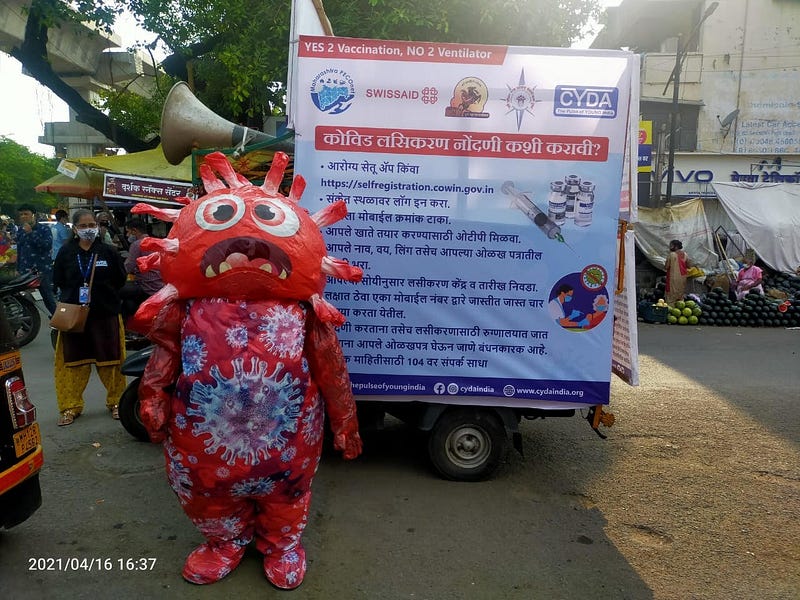
Acknowledging that the dignity and rights of marginalised and vulnerable groups are integral to any response, the Maha PECONet platform aimed to ensure assistance to the unreached and build resilience for these communities during, before and after emergencies through risk informed development, mitigation, adaptation and effective disaster response. The core principles of the network include Partnership and Collaboration, Co-location and Co-creation, Entrepreneurship and Innovation Communication and Coordination, Transparency and Accountability, and Constructive Advocacy for all stakeholders and citizens.
Some of the key interventions of the platform include:
Relief and Response during the Pandemic: Considering its formation in the context of COVID relief, the primary year was spent in understanding the nature of collective response required as the pandemic spread, across time and region under the Jeevan Rath programme. What started as a small WhatsApp group, quickly grew from 20 to over 60 members overnight and a movement took shape in mid-May 2020, with a pledge to raise funds and support the needs of the affected people. The initiatives under Jeevan Rath included immediate relief and response in tackling the growing food insecurity amongst marginalised communities, support to migrant workers in the wake of the emergent crisis followed by focus on livelihood initiatives for those who had lost their jobs as a consequence of the State induced lockdown.
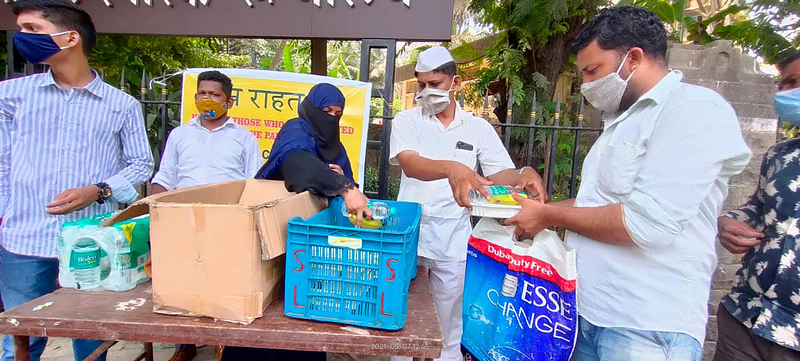
With the pandemic continuing for over a year, the focus of the platform witnessed a shift in its approach towards including community-based programmes of social awareness about COVID-appropriate behaviour (CAB), projects focussed on the various aspects of Water Sanitation and Hygiene (WASH), supporting healthcare infrastructure by supplying medical equipment and supplies, facilitating the process of vaccination for severely vulnerable communities, and processes to ensure food security among economically-affected groups. The platform through its collective efforts has reached out to over 5.5 million people across Maharashtra.
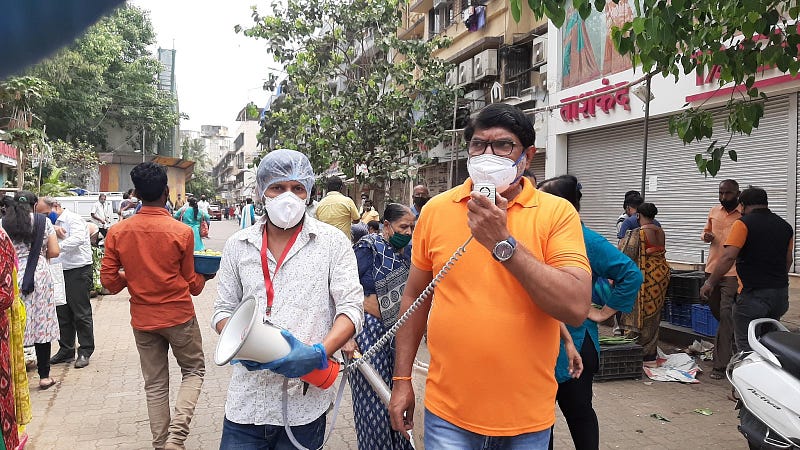
Vaccination Drive: In order to tackle the issue at the root, MahaPECONet took an aggressive approach to enabling vaccination for all, in particular people from severely vulnerable communities. Vaccination Help Desks (VHDs) were envisioned as a one-stop window for all forms of queries and assistance required for a person to access and complete their vaccination. In addition, assistance was provided to the frontline workers at the vaccination centres to help smoothen out the creases at a time of intensity and emergency. While initially the work began in the urban, district headquarters, the network entered the rural sphere with the launch of Co-MARG (a rural-focused programme). During the conceptualisation of Co-Marg, the need for long term social protection related to health was realised and hence the VHDs were reconceptualised as Vaccination Health Help Desks (VHHDs) where enhanced access to health-related entitlements was initiated as well. Co-Marg is currently being undertaken in 6 rural districts by 7 implementing partners.
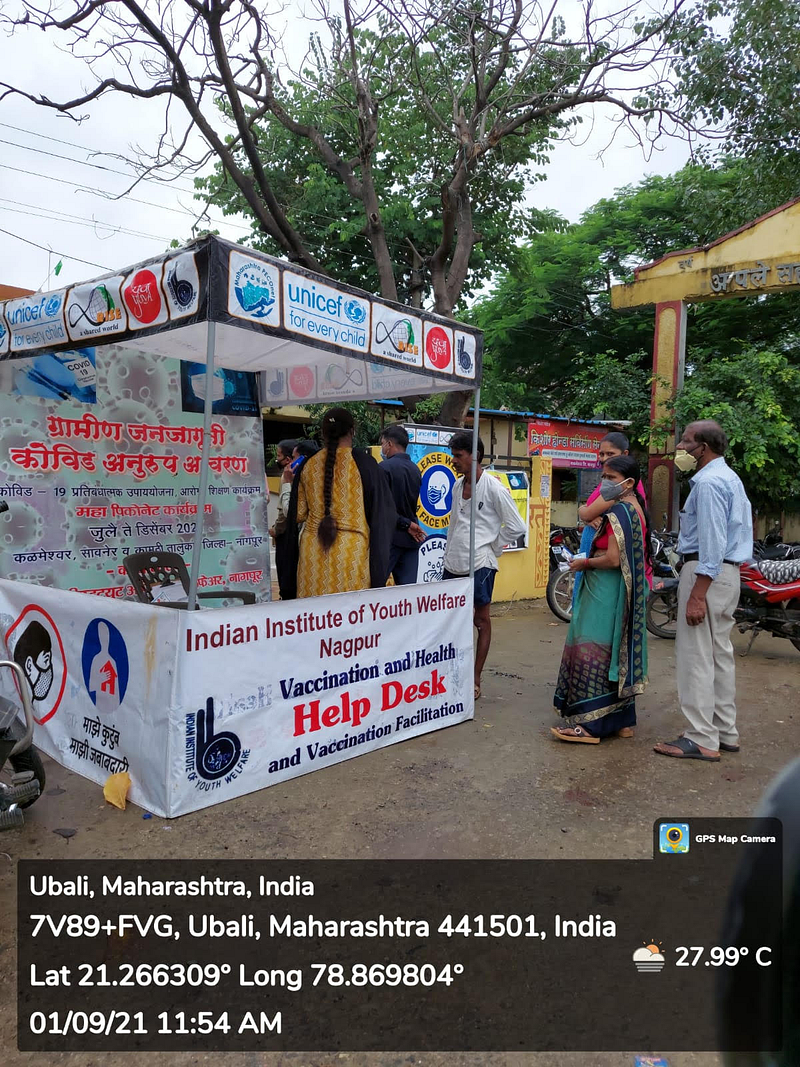
The Vaccination drives have been able to facilitate the vaccination of over 3.2 lakh people across rural and urban Maharashtra.
Flood Relief: In July 2021, Maharashtra saw the highest rainfall it had seen in the month in the previous 40 years. Widespread flooding in the western districts of the State adversely impacted the unplanned development built over watersheds, and wiped out natural resources at a mass-scale. The MahaPECONet 2.0 stepped in to conduct Joint Rapid Needs Assessments (JRNA) speared by Sphere India and RCUES, in order to understand the scale of destruction and design the kind of responses required. Many partner organisations through collaborative efforts used their networks to collect resources and distribute them, along with food packages, to the flood-affected households. Post the immediate emergency response, partners are continuing to support rehabilitation and rebuilding efforts in 16 blocks from 5 flood affected districts with an aim to reach out to 24,000 families and children with Hygiene-Dignity Kit and Education\Recreational materials promoting the ‘Back to School’ initiative.

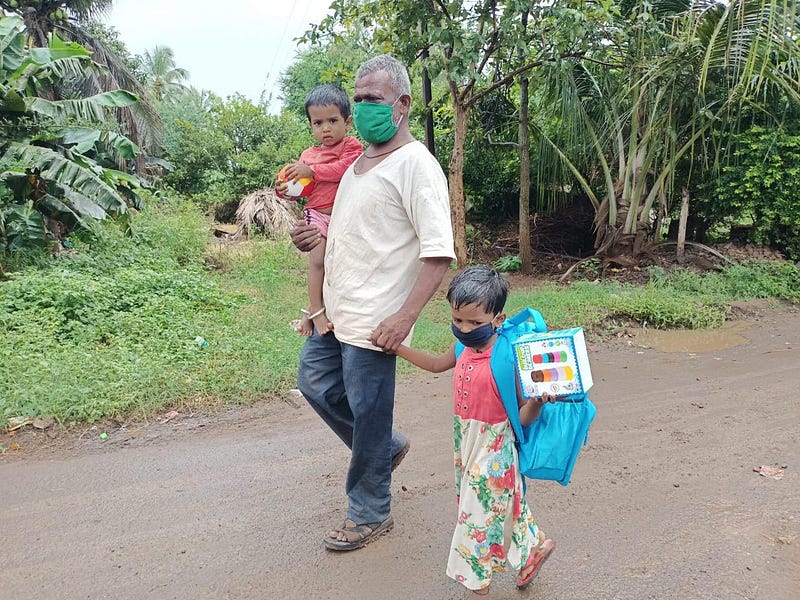
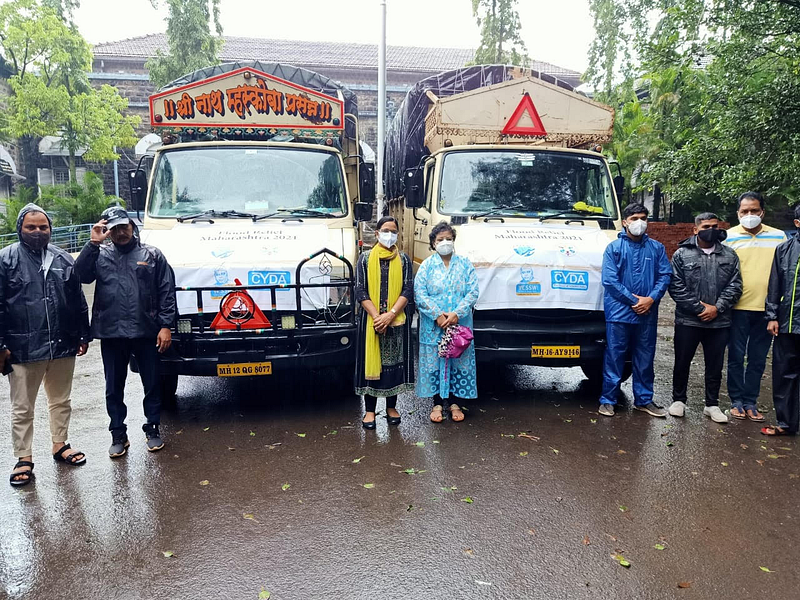
Thematic Interventions (Long-Term): While the relief and response to COVID and the flood were emergency interventions, the network has in its formal structure highlighted long-term planning and interventions in 4 key areas:
Theme 1: Housing and Basic Services
Theme 2: Social Protection and Entitlements
Theme 3: Skill-development, Employment and Entrepreneurship and Livelihoods in Rural and Urban Areas
Theme 4: Climate Change Adaptation and Community Resilience
The member organisations are being mapped thematically to ensure development of the programme and advocacy points under each thematic focus. Respective Thematic Anchors would lead the processes towards long-term resilience building and disaster risk reduction. The approach under each thematic area aims to create the scope for strategic learning and skill development through Thematic Conventions, as well as develop a collaborative Action-Oriented Programme under each thematic heading.
While the thematic groups are being organised, the process of Thematic Convenings and capacity building of partners (both online and offline) has already been initiated. Technical trainings on setting up VHDs/VHHDs, Thematic Convening on Housing and Disasters, onground workshops on Localising SDGs from a gender perspective in partnership with SAHAJ and Wada Na Todo Abhiyan have been some of the initiatives towards long term knowledge sharing and risk reduction programming.
Opportunities & Learnings
With the multiple disaster situation in Maharashtra, Maha PECOnet 2.0 partners have not only been trying to understand the emerging needs of the populations and provide relief but also support the governments and healthcare systems to meet the current challenges. The continued challenges emerging from the field, led to several conversations and discussions towards finding collaborative solutions in a disaster situation. Decisions were taken regarding ongoing activities to cater to the changing situation, new initiatives commenced to meet emergency needs along with more recent initiatives towards long term recovery and rehabilitation. Some of the challenges and opportunities through this period include:
- The Covid-19 pandemic that began in 2020 and has been ongoing for over a year, saw a decline in the adherence to CAB and increasing fatigue amongst populations to follow protocols required to contain the spread of the virus. The awareness drives reinforcing CAB and the continued need for prevention and safety emerged as a timely and much needed intervention.
- The Vaccination Drives assisted in understanding the reasons for vaccine hesitancy and addressing them, addressing the spread of misinformation, enabling populations to opt for the vaccine as well as bridging the technological gap.
- Constant engagement of partners within the platform and outside has allowed the creation of a space where partners are comfortable to share their personal/societal concerns/challenges related to the ongoing disasters and solutions are sought collectively. Through membership to the Maha PECOnet platform, partners are able to collaborate, coordinate and leverage the platform for impact at scale and in depth.
- Situational analysis has been possible due to the expanse of the network working on the ground as well as surveys being conducted, leading to the deliberation over solutions and newer initiatives in addressing current challenges.
- The Thematic work envisioned for long-term resilience building of vulnerable and marginalised communities, that was put on hold during the second wave, has been re-initiated. Several interventions across thematics have been planned and are currently ongoing. These interventions will be essential for enhancing the impact of the platform beyond emergency response and is targeted for ensuring that collectively we build back better.
- Engagement with stakeholders outside the platform partners such as government officials, healthcare professionals, corporates etc. have assisted in understanding systemic and structural needs, thereby allowing partners to work together to address gaps wherever possible.
- Lastly, and most importantly, the platform has focused on reaching out to the most vulnerable and marginalised communities, who found themselves outside the ambit of social protection either due to lack of identity documentation or systemic exclusion. Partners’ targeted efforts in supporting such groups and communities has not only highlighted the multiple layers of vulnerability that exist but also formulates an important step towards ensuring social inclusion and commitment to ‘Leaving No one behind’.
The strength of the Maha PECOnet 2.0 platform lies in all the collaborative efforts of its partners who have been working tirelessly to support vulnerable communities through diverse interventions. While we are not able to mention all the individual partners here, we would like to take this opportunity to thank them for their contribution and continued support. To know more about the details of the partners and the work done by the MahaPECONet 2.0, visit the website.


